GIMBALS
Contents
Gimbal Build Projects
Gimbals have been an Obsession at times!
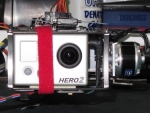 |
TBS Discovery Gimbal Project May 2013 |
 |
Easy Brushless Gimbal August 2013 |
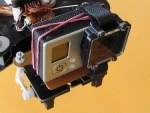 |
Super Simple Gimbal March, 2014 |
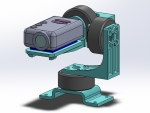 |
Mobius 3 Axis Flat Brushless Gimbal November 2014 |
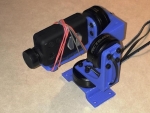 |
Mobius 3 Axis Vertical Brushless Gimbal November 2014 |
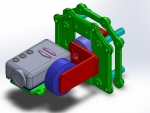 |
Talon X-UAV Mobius Gimbal Project April 2015 |
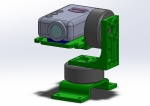 |
Pan & Tilt Brushless Gimbal August 2015 |
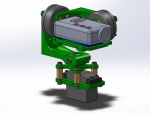 |
Servo Pan Plus 2 Axis Brushless Gimbal January 2016 |
Brushless Controllers
This article is about my experience with four different brushless gimbal control systems. All four systems, set up correctly, have excellent stability quality but they vary considerably when it comes to ease of tuning, GUI features and optional stability modes.
The four systems covered here are:
- BaseCamElectronics/Alexmos v2.2b2
- Tarot ZYZ22 GOPRO Brushless Camera Gimbal Controller
- Martinez BruGi Open Source Project
- Alexmos v2.1 Nulled
BaseCamElectronics/Alexmos
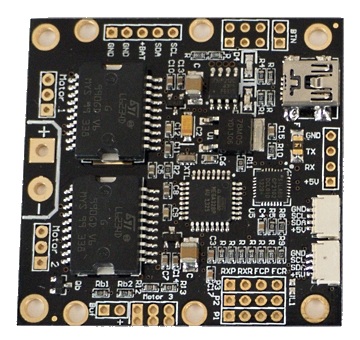
|
| The BCE controller with its IMU |
I picked up one of these from AerialPixels.com after having spent many, many hours working with the BruGi open source firmware on several of the Martinez board types. I'm starting with this system because it basically set the standard in inexpensive controllers. I ran or tested all of these on the same front mounted gimbal which I built for my TBS Disco
Here are the specs:
- Price - $149.00
- Firmware - v2.2b2
- Set-Up - Easy
- Tuning - Easy
- Stability Torque - High
- GUI Clarity - Good
- Follow Mode - Yes
The Good
Tuning and set-up for the standard 2 axis gimbal was simple and straightforward. This system delivers some of the highest usable torque without causing buzzing or oscillation so it is the most tolerant of wire tension or out-of-balance issues. The motor configuration "AUTO" feature is a plus as it sets the correct (right hand rule) direction keeping the gimbal smooth and trouble free. If your board has the reset button feature this is also nice because you can program the button for up to 6 functions. I had mine set up for ACC Calibration, Reset and "Hand Position" which is really nice if you aren't using RC Pitch control.
The Bad
Not really a "bad" but it would be nice to have a manual offset adjustment on tilt and roll to make up for outside influences.
Tarot ZYZ22
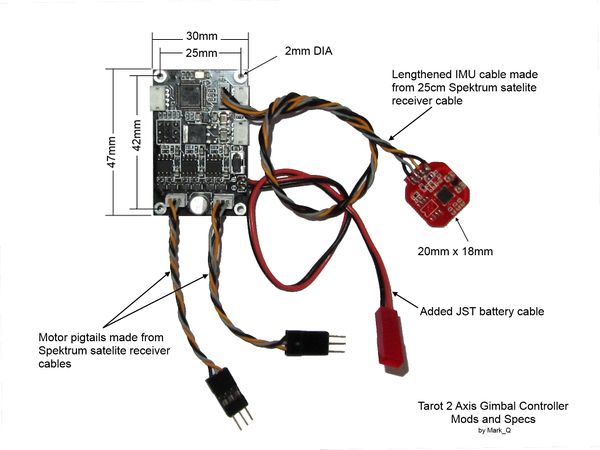
|
| The Tarot controller with its IMU and made-up wire harnesses |
I bought the Tarot controller because a friend had the complete Tarot Gimbal and when he showed me how it all worked and the ease of tuning and set-up, I had to give it a try.
Here are the specs:
- Price - $47.00
- Firmware - v1.4
- Set-Up - Moderate
- Tuning - Easy
- Stability Torque - Moderate
- GUI Clarity - OK
- Follow Mode - Yes
The Good
The board is small at 30mm x 47mm. The system GUI is easy to read and understand and I found no driver issues on a Win7 64bit Pro machine. The GUI for this board is relatively straightforward and works as expected. The torque supplied is very close to the BaseCam system and the smoothness was, as far as I could tell, equal as well. Really, this board delivers the best bang for the buck.
The Bad
The board comes with JST type SH connectors for all hook-ups which I don't personally care for because with repeated use, they can become un-reliable which no one likes. This also presents a bit of a problem in that the motor wires are limited by what you can get into these connectors, usually no more than 26ga and that is a stretch.
Martinez BruGi Open Source Project
This is the system that started it all for me. Beginning with the RCTimer GoPro gimbal and their version 1.0 Martinez board.